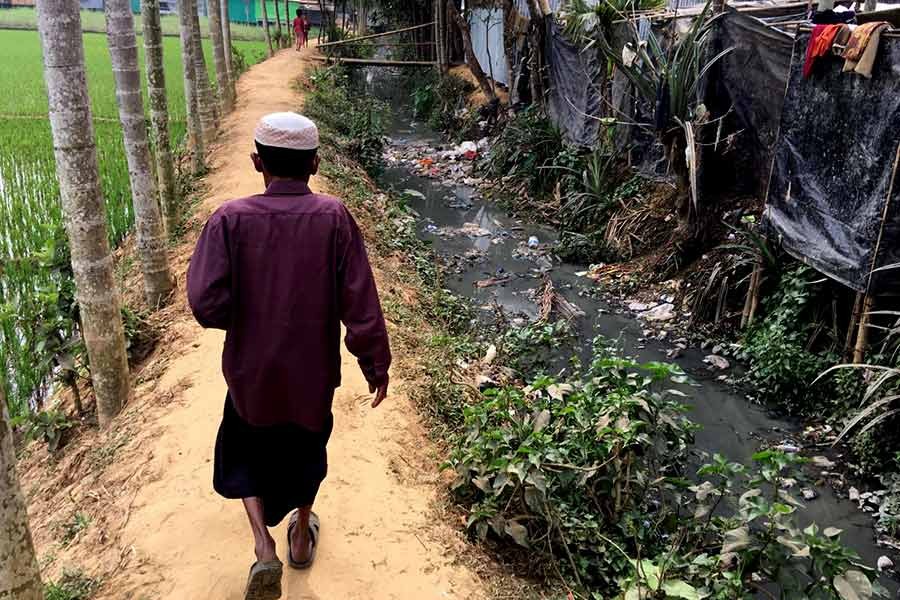
Published :
Updated :

UN Assistant Secretary-General for Human Rights Andrew Gilmour has said the ethnic cleansing of Rohingya from Myanmar is continuing
The senior UN human rights official also raised voices over Myanmar's double standard role.
"The government of Myanmar is busy telling the world that it's ready to receive Rohingya returnees, while at the same time its forces are continuing to drive them into Bangladesh," Gilmour said.
Andrew Gilmour came up with the remarks through a statement on Tuesday, at the end of a four-day visit to Bangladesh.
The visit focused on the situation of the approximately 700,000 refugees who have fled from Myanmar since last August.
During his visit, Gilmour interviewed recently arrived refugees in Kutupalong-Balukhali, which in the seven months since August last year has become the largest refugee camp in the world.
A number of people told Gilmour that Rohingya who try to leave their villages or even their homes are taken away and never return.
One man told how his father was abducted by the Myanmar military in February. He was instructed a few days later to collect the body.
He recounted that he was too afraid to ask the military what had happened to his father, but that the corpse was covered in bruises.
Gilmour held meeting with Bangladeshi officials, UN agencies and non-governmental organisations involved in the humanitarian response in Cox's Bazar.
During these meetings, he raised alarm at the prospect of the loss of life in the camps due to the imminent rains.
Bangladesh and international humanitarian response to the Rohingya crisis has been very impressive.
But the rainy season is likely to have a devastating effect on camps such as Kutupalong, a sprawling complex of shelters made of plastic sheeting and bamboo poles located across steep valleys and hillsides.
"Having suffered so much from the manmade disaster inflicted by Myanmar, the fear is that this will be compounded by a natural disaster of heavy rainfall," he said.
In Dhaka, Gilmour met senior government officials, and commended the country's great hospitality in providing protection and shelter.
"In welcoming such a massive influx of Rohingya refugees, Bangladesh has shown a level of generosity that is sadly lacking in many parts of the world, including in this region," he said.
According to UNB, Gilmour expressed his gratitude to the Government of Bangladesh for its support to his mission and his deep admiration for their extraordinary response to the Rohingya in their hour of need.


 For all latest news, follow The Financial Express Google News channel.
For all latest news, follow The Financial Express Google News channel.